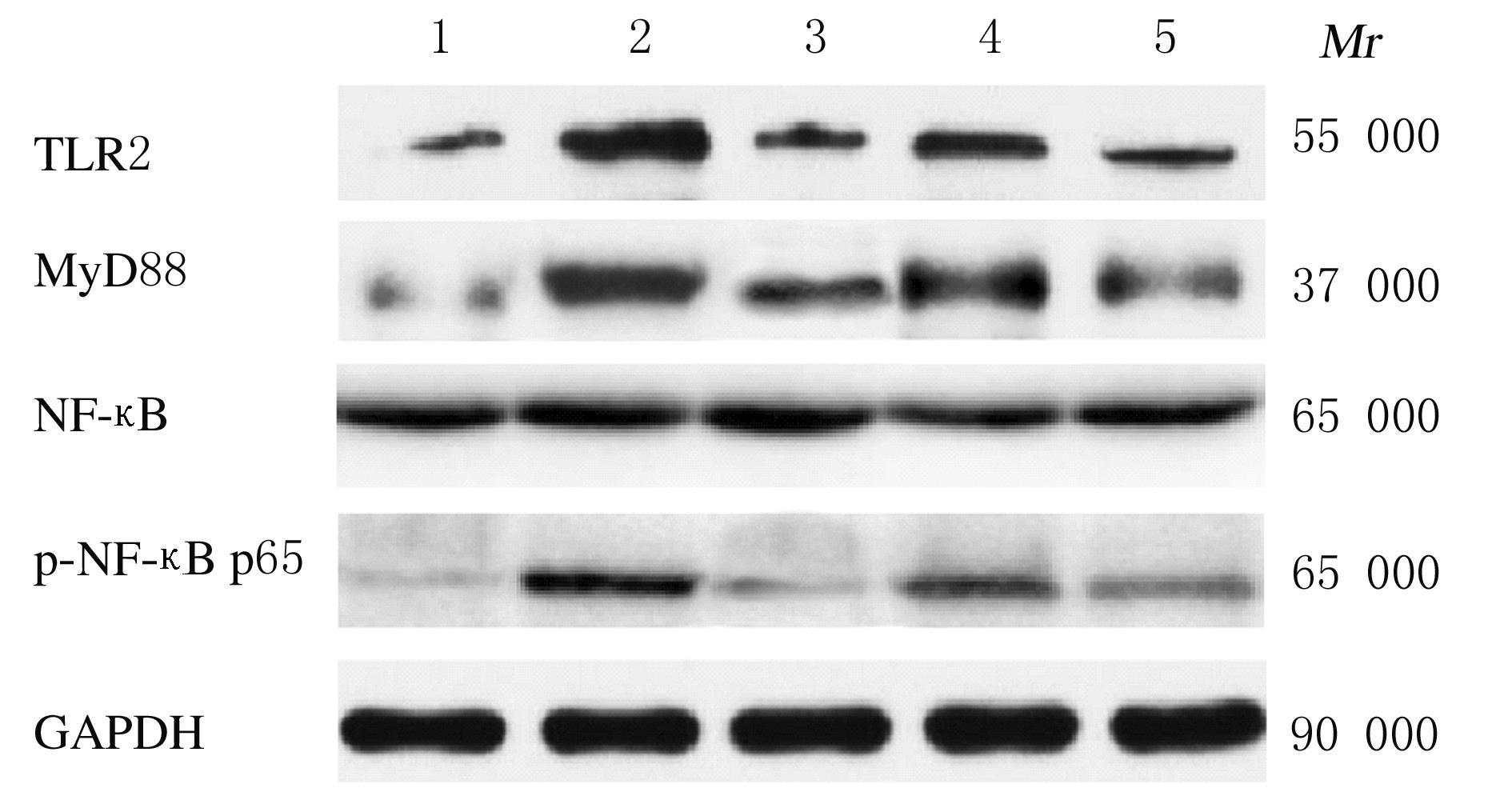| 1 |
ZHOU L, GU X J. Correlation of ultrasonography synovitis with disease activity and clinical response to etanercept treatment in juvenile idiopathic arthritis patients[J]. Braz J Med Biol Res, 2019, 52(12): e8565.
|
| 2 |
CHEN H, PAN T, LIU P W, et al. Baihu Jia Guizhi decoction improves rheumatoid arthritis inflammation by regulating succinate/SUCNR1 metabolic signaling pathway[J]. Evid Based Complement Alternat Med, 2019, 2019: 3258572.
|
| 3 |
郭亚春, 赵晓菲, 黄 群, 等. 薯蓣皂苷元体外作用对胶原诱导性关节炎小鼠Th1/Th2型细胞因子的影响[J]. 中国老年学杂志, 2018, 38(13): 3193-3196.
|
| 4 |
CAO C X, WU F, NIU X Y, et al. Cadherin-11 cooperates with inflammatory factors to promote the migration and invasion of fibroblast-like synoviocytes in pigmented villonodular synovitis[J]. Theranostics, 2020, 10(23): 10573-10588.
|
| 5 |
陈 玲, 任 辉, 许 蓉, 等. 竹节参地上部分总苷成分对大鼠佐剂性关节炎的治疗作用[J]. 中华实验外科杂志, 2019, 36(3):516-519.
|
| 6 |
郭江燕, 姜姝姝, 高宇晨, 等. 麦粒灸对佐剂型关节炎大鼠屈关节疼痛实验(缩腿嘶鸣)评分及足容积肿胀度的影响[J]. 中医药导报, 2015, 21(11): 7-9.
|
| 7 |
TREUTLEIN C, BÄUERLE T, NAGEL A M, et al. Comprehensive assessment of knee joint synovitis at 7 T MRI using contrast-enhanced and non-enhanced sequences[J].BMC Musculoskelet Disord,2020,21(1):116.
|
| 8 |
ISHIBASHI K, SASAKI E, OTA S, et al. Detection of synovitis in early knee osteoarthritis by MRI and serum biomarkers in Japanese general population[J]. Sci Rep, 2020, 10(1): 12310.
|
| 9 |
郭亚春, 高亚贤, 宋鸿儒, 等. 薯蓣皂苷元体外对大鼠滑膜RSC-364细胞株STAT3及VEGF影响的研究[J]. 现代预防医学, 2016, 43(1):128-130,150.
|
| 10 |
王文云, 李 杰, 马铁梁, 等. 薯蓣皂苷元对脂多糖诱导的BV2小胶质细胞极化状态的影响[J]. 世界中西医结合杂志, 2018, 13(1):39-43.
|
| 11 |
LI R, ONG S L, TRAN L M, et al. Chronic IL-1β-induced inflammation regulates epithelial-to-mesenchymal transition memory phenotypes via epigenetic modifications in non-small cell lung cancer[J]. Sci Rep, 2020, 10(1): 377.
|
| 12 |
UDOMSINPRASERT W, JINAWATH A, TEERAWATTANAPONG N, et al. Interleukin-34 overexpression mediated through tumor necrosis factor-alpha reflects severity of synovitis in knee osteoarthritis[J]. Sci Rep, 2020, 10(1):7987.
|
| 13 |
CHEN Z, LIN C X, SONG B, et al. Spermidine activates RIP1 deubiquitination to inhibit TNF-α-induced NF-κB/p65 signaling pathway in osteoarthritis[J]. Cell Death Dis, 2020, 11(7): 503.
|
| 14 |
DING S L, PANG Z Y, CHEN X M, et al. Urolithin a attenuates IL-1β-induced inflammatory responses and cartilage degradation via inhibiting the MAPK/NF-κB signaling pathways in rat articular chondrocytes[J]. J Inflamm (Lond), 2020, 17: 13.
|
| 15 |
TAN Y, TSENG P, WANG D R, et al. Retraction: stiffening-induced high pulsatility flow activates endothelial inflammation via a TLR2/NF-κB pathway[J]. PLoS One, 2019, 14(7): e0220600.
|
| 16 |
WU H M, ZHAO C C, XIE Q M, et al. TLR2-melatonin feedback loop regulates the activation of NLRP3 inflammasome in murine allergic airway inflammation[J]. Front Immunol, 2020, 11: 172.
|
| 17 |
CAI X Y, ZHU Y, WANG C, et al. Etanercept inhibits B cell differentiation by regulating TNFRII/TRAF2/NF-κB signaling pathway in rheumatoid arthritis[J]. Front Pharmacol, 2020, 11: 676.
|
| 18 |
SONG H P, ZENG M Y, CHEN X J, et al. Antiulcerogenic activity of Li-Zhong decoction on duodenal ulcers induced by indomethacin in rats: involvement of TLR-2/MyD88 signaling pathway[J]. Evid Based Complement Alternat Med, 2020, 2020: 6538156.
|
| 19 |
MITCHELL J P, CARMODY R J. NF-κB and the transcriptional control of inflammation[J]. Int Rev Cell Mol Biol, 2018, 335: 41-84.
|
| 20 |
崔毅佳, 王淑梅, 金志国. 甲氨蝶呤通过抑制TLR2-NF-κB信号通路减轻类风湿关节炎大鼠滑膜炎的作用研究[J]. 新疆医科大学学报, 2019, 42(2):211-216.
|
 ),Chengzhi HONG
),Chengzhi HONG







